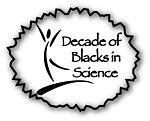I am a member of the world's largest Scientific Society, AAAS. AAAS is the American Association for the Advancement of Science. It is an international non-profit organization dedicated to advancing science around the world by serving as an educator, leader, spokesperson and professional association. In addition to organizing membership activities, AAAS publishes the journal Science, as well as many scientific newsletters, books and reports, and spearheads programs that raise the bar of understanding for science worldwide.
Scientific Literacy is very important and increasing the public's understanding of science and issues related to science is one of the purposes of Urban Science Adventures. However, the first hurdle is addressingthe Public Relations problem Science has in Society's eyes. Coincidentally, the most recent on-line newsletter, AAAS in Action, address this issue. Below are two snippets from the newsletter. Follow the links to read more in-depth.
A New Vision for Engaging the Public in Science Issues "Simply lamenting the tension or protesting attacks on the integrity of science and science education won’t work," wrote AAAS CEO Alan I. Leshner in a commentary published in The Chronicle of Higher Education on 10 October . Rather, to overcome public skepticism on issues ranging from climate change to stem cell research, science organizations and individual scientists must reach out to local news media and religious, community, and school groups. Read about a workable new approach to public engagement: https://email.umsl.edu/exchweb/bin/redir.asp?URL=http://www.members-aaas.org/util/link.jsp?cid=2%26track_id=96%26link_id=8246%26subscriber_id=156926. "Framing" is Shaping Science Policy Debate A mid-October seminar sponsored by AAAS Science and Policy and the Washington Science Policy Alliance examined how humans, as "cognitive misers," seek shortcuts for understanding massive amounts of information including embryonic stem cell research, climate change, and the teaching of evolution. Political strategists, scientists, and the news media can take advantage of our tendency to create mental shortcuts and influence public opinion using thought organizers, or "frames," which package complex information by focusing on certain interpretations, according to Matthew Nisbet, an assistant professor in the School of Communication at American University . Read more and watch the PowerPoint presentation: https://email.umsl.edu/exchweb/bin/redir.asp?URL=http://www.members-aaas.org/util/link.jsp?cid=2%26track_id=96%26link_id=8247%26subscriber_id=156926.
Happy information hunting,
DNLee
Friday, November 17, 2006
Importance of Scientific Literacy. Part 2
Subscribe to:
Post Comments (Atom)






















No comments:
Post a Comment